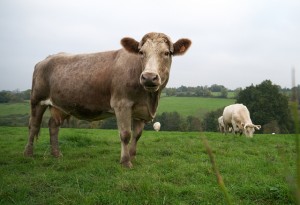Unicef: Children will be hit hardest by climate change

Unicef says children have been left out of the climate change debate (Photo: CC BY-SA 2.0 by Dhilung Kirat/flickr.com)
As leading scientists gather in Stockholm to produce a detailed review of our knowledge of climate change so far, a new study released this week says that rising global temperatures pose the biggest risks to children.
Children’s charity Unicef says health problems, a relative lack of resources, vulnerability to disease, malnutrition and migration make children especially vulnerable to climate change. Despite that, the group says, children have largely been left out of the debate so far.
“We are hurtling towards a future where the gains being made for the world’s children are threatened and their health, wellbeing, livelihoods and survival are compromised … despite being the least responsible for the causes,” David Bull, Unicef’s UK executive director, said “We need to listen to them.”
In the paper, the group warns that changing weather in the form of an increase in droughts, floods, heatwaves and storms are among the most pressing concerns facing the young.
“The legacy of climate change is no longer a distant projection, but will be felt by children born this year and beyond. A child born in 2013 will be 17 in 2030 and 37 in 2050, when the worst impacts of climate change will begin to be felt,” the charity says.
Today, 700 million children live in the ten countries most vulnerable to climate change, and it’s estimated that 25 million more children will be malnourished as a result of climate change by 2050.
Meanwhile, the Intergovernmental Panel on Climate Change (IPCC) meeting in Stockholm is expected to warn that climate change is almost certainly caused by human actions. Scientists are expected to say it will lead to a global temperature rise likely to top 2C, with related effects including the shrinking of the Arctic ice cap and glaciers, a rise in sea level by nearly 1 meter by the end of this century and more extreme rainfall in parts of the globe.






